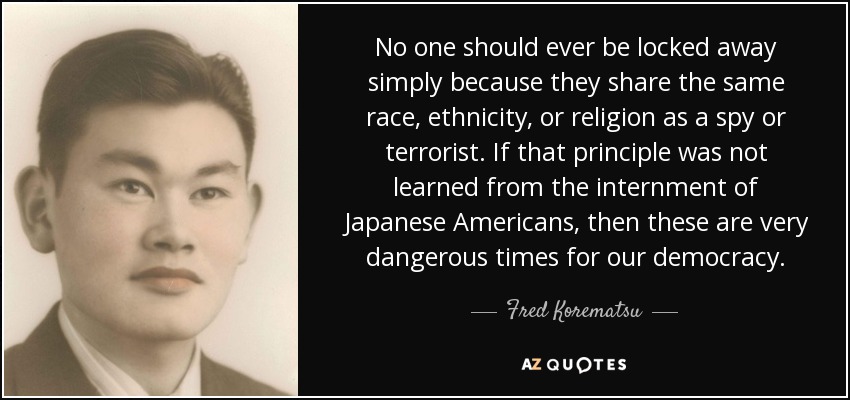Tom Dickson was shocked upon discovering last year there was nothing established to honor the tradition of baseball in Michigan.
The Lansing Lugnuts owner decided to change that.
The Lugnuts announced Wednesday the establishment of the Michigan Baseball Hall of Fame during a press conference at Cooley Law School Stadium.
The Hall of Fame will be similar to Monument Park at Yankee Stadium. The plaques of the inductees will be on permanent display beyond the wall in left-center field of the renovated Cooley Law School Stadium, which will feature a new 360-degree walkway around the stadium this season.
The Hall of Fame will officially open Saturday, June 27, which is when the inaugural class will be inducted.
The inaugural class will have 10 inductees that will be determined by a nine-member committee of baseball experts that includes Detroit Tigers broadcaster Mario Impemba, longtime Tigers scout Clyde Weir, former Tigers radio broadcaster Paul Carey, longtime area baseball coach Jake Boss Sr., MSU grad and Milwaukee Brewers broadcaster Joe Block, local sports anchors Fred Heumann and Tim Staudt, MHSAA assistant director Mark Uyl and former Michigan baseball coach Rich Maloney.
For the full article, see Brian Callaway, “Lugnuts establish Michigan Baseball Hall of Fame”, Lansing State Journal, January 28, 2015.
Jesse Goldberg-Strassler, “Building a Hall of Fame from Scratch“, Ballpark Digest, January 29, 2015.
Martha Edna Wright was born in Pierce City, Missouri, on January 29, 1912. Her father, Charles Elbridge Wright, was a rural mail carrier. Her mother, Nelle, served as a substitute carrier from the time that America entered World War I. Martha also had a brother, Edward.
University Years (1930-1940)
Martha attended the University of Missouri, where she met fellow student Hicks Griffiths (born in Amsterdam, New York on July 9, 1910). The two were married on December 28, 1933. They graduated from the University the following year.
Hicks convinced Martha to go to law school with him. Harvard University accepted Hicks, but not Martha, as they wouldn’t accept women. The couple decided to attend the University of Michigan Law School together instead. They both received their Juris Doctorates there in 1940. They then relocated to Detroit, where they worked as attorneys for American Automobile Insurance Company.
World War II and Early Post-War Era (1941-1954)
During World War II, Martha worked as a contract negotiator for the U.S. Army’s Detroit Ordinance District. Meanwhile, Hicks served as Chief Price Attorney for the U.S. Office of Price Administration. After the war, Martha ran for State Representative but lost. That same year (1946), she and Hicks formed their own law firm: Griffiths and Griffiths. G. Mennen Williams joined this firm in 1947. In 1948, Williams ran for Governor while Martha again ran for State Representative. Both won. Martha remained in the State Legislature until 1953. She left when Governor Williams appointed her a judge of the Detroit Recorder’s Court.
U.S. Congresswoman (1955-1975)
In 1954, Martha Griffiths was elected U.S. Representative of the 17th Congressional District of Michigan. Her term began in 1955, and she remained in the U.S. House for twenty years. Committees on which she served include Ways and Means, Banking and Currency, Government Operations, the Committee on Crime, the Committee on the Budget, and the Joint Economic Committee. She also served as Chairwoman of the Joint Economic Subcommittee on Fiscal Policy. She chaired the Joint Economic Committee hearing on the modern pension system and led an important study on welfare. The study produced a multi-volume work that would be researched and cited for years to come.
Griffiths was also a notable champion of women’s rights. She successfully argued to include anti-gender discrimination language in the 1964 Civil Rights Act. She also sponsored the Equal Rights Amendment and worked to pass it through Congress (Although passed by Congress, it failed to be ratified by the required number of states.).

Michigan Supreme Court Justice G. Mennen Williams administers the oath of office to Martha Griffiths during her inauguration for a second term as Michigan’s lieutenant governor. Her husband, Hicks Griffiths, stands between her and Justice Williams. Michigan Governor James Blanchard is seated in the lower left of the photo.
Post-Congressional Years (1975-2003)
Griffiths retired from Congress in 1975. She then served on the boards of several corporations, including AAA of Michigan, Burroughs, Chrysler, Consumers Power, Greyhound, K-Mart and Verex. In 1982, she was elected Lieutenant Governor to Michigan Governor James Blanchard. As Lieutenant Governor, she chaired the Michigan Equal Employment and Business Opportunity Council (MEEBOC) and served as Chief Affirmative Action Officer. After two terms, Governor Blanchard informed Griffiths that she wouldn’t be his running mate in the 1990 election. Blanchard lost, and many felt that his decision to drop Griffiths from the ticket was a factor.
Martha Griffiths passed away on April 22, 2003. Her husband, Hicks, preceded her in death in 1996. The couple had no children.
Martha Griffiths Papers
Martha Griffiths donated personal papers to the Archives of Michigan. They include general correspondence, Christmas and birthday cards, transcribed speeches, biographical material, guest registers, scrapbooks, a diary, oral history interview transcripts and photographs. Click Guide to Martha Griffiths Papers to view a finding aid to the collection.
Reposted from Seeking Michigan, March 31, 2015

The 18th Amendment, prohibiting the sale of intoxicating liquors in the United States, was ratified by the Michigan legislature on this day. Michigan actually went dry on May 1, 1918, over a year before the 18th Amendment providing for national prohibition became effective. It was estimated that during the years of Prohibition (until 1933), 75 percent of all the booze smuggled into the United States crossed at the Detroit/Windsor border.
Sources :
Troy Eller, Archivist for the Society of Women Engineers, “The Windsor-Detroit Funnel: Prohibition in Detroit”, Walter P. Reuther Library Blog, January 17, 2012.
Prohibition in Detroit Photo Gallery, Walter Reuther Library, Wayne State University.
Did you know Michigan’s first rocket to launch into space came from a site in the Keweenaw?
The State of Michigan established a rocket range at this location. It was active from 1964-1971. The first rocket was launched on January 29th, 1971. In tribute to this historic work done, this memorial stone was placed during the summer of 2000.
This site is accessible to the public but is challenging to get to. From this location you are able to see Manitou Island and Lake Superior—the views from here are truly awe-inspiring. Not much remains of the rocket launch testing site other than the memorial stone and a slab of concrete.
Reference: Wikipedia/KRR
Source: Michigan’s Keweenaw Peninsula Facebook Page, May 2, 2018.
“A fiery horse with the speed of light, a cloud of dust and a hearty Hi-Yo Silver! The Lone Ranger! … With his faithful Indian companion Tonto, the daring and resourceful masked rider of the plains led the fight for law and order in the early western United States! Nowhere in the pages of History can one find a greater champion of justice! Return with us now to those thrilling days of yesteryear! From out of the past come the thundering hoofbeats of the great horse Silver! The Lone Ranger rides again!
“Come on, Silver! Let’s go, big fellow! Hi-yo Silver! Away!”
The Lone Ranger was conceived in the depths of the great depression. The first episode aired on Detroit radio station WXYZ and seven other Michigan affiliates on January 30, 1933.
After gaining steadily in popularity among radio listeners for a decade and a half, the first of a 221-episode Lone Ranger TV series was aired on September 15, 1949.

A film was made in 2013:

More Michigan connections:
Lone Ranger Fandom states that Jewell picked The William Tell Overture for the music because it was public domain, and no copyright fee was needed. The term “kemo sabe” that Tonto called the Lone Ranger came from Mullett Lake, up near Cheboygan. Jewell’s father-in-law ran a boys’ camp on Mullet Lake, named “Camp Ke-mo-sah-bee”. Following the success of “The Lone Ranger”, the camp changed its name in the mid-1930s to the “Lone Ranger Camp” until 1941.
Source: John Robinson, “ The Lone Ranger Term “Kemo Sabe” Came From This Michigan Location “, 99.1 WFMK Blog, April 28, 2021.
For more information see Michigan Historical Calendar, courtesy of the Clarke Historical Library at Central Michigan University and
“Players play. Tough players win.” ~Tom Izzo
Happy birthday to the one and only! Born on July 3, 1955 in Iron Mountain, Michigan.

House Minority Leader Sam Singh (D-East Lansing) and Rep. Stephanie Chang (D-Detroit) have introduced a bill and resolution that would commemorate the efforts of former Detroit resident Fred Korematsu.
During World War II, as many as 120,000 Japanese Americans were placed in internment camps. Korematsu, seeing this policy directly violated the constitution, refused to relocate and brought his fight against Japanese internment camps to the U.S. Supreme Court.
Singh’s HB 4110 would establish Fred Korematsu Day in Michigan to be commemorated each year on Jan. 30, Korematsu’s birthday.
Chang’s HR 11 calls for Jan. 30, 2017, to be declared Fred Korematsu Day in Michigan. Singh and Chang made similar efforts last year (See “Asian Pacific Caucus Wants Permanent Recognition For Japanese-American,” MIRS, 1/27/16).
At a time when many Americans don’t feel safe on the basis of their race, country of origin, or religion, the legacy of Fred Korematsu is more important than ever. In 2014, the United States Commission on Civil Rights urged the President and Congress to establish national holidays honoring Cesar Chavez and Fred Korematsu, but to date nothing has been establish. Hawaii, Virginia, and Florida have established Fred Korematsu Day in perpetuity. It is time to establish it on a national level. Let’s send a message that Americans values civil liberties and our constitution by making a national Fred Korematsu Day.
More about Fred Korematsu.
On Jan. 30, 1919, former Detroit resident Fred Korematsu was born in Oakland, Calif., the third of four sons of Japanese immigrant parents who ran a floral nursery business. Korematsu is known for challenging in court his detainment in the U.S.-based internment camps during World War II for those of Japanese ancestry.
After his release, he moved to Detroit, where his younger brother lived. There, he met his soon-to-be wife, Kathryn, a student at Wayne State University who was originally from South Carolina. They moved back to San Francisco in 1949.
While losing originally in the courts, Korematsu’s conviction was overturned by a federal court judge in 1983, and he received the Presidential Medal of Freedom in 1998.
Source : MIRS, January 26 and 30, 2017.
Fred Korematsu Day update.
For more information see Of civil wrongs and rights : the Fred Korematsu Story / a film by Eric Paul Fornier. MSU Digital/Multimedia Center KF7224.5 .O4 2000 VideoDVD
For just the third time in the past 40 years, the University of Michigan will cancel classes on its Ann Arbor campus.
UM announced it will cancel classes for Wednesday, Jan. 30, and Thursday, Jan. 31, due to pending inclement weather and expected below-freezing temperatures. The university confirmed an emergency reduction of operations was in effect from midnight Wednesday through 7 a.m. Friday.
In a Tuesday afternoon email message sent to students, faculty and staff on the Ann Arbor campus, university leaders said the reduction in operations includes the cancellation of all classroom and laboratory instruction and also extends to all non-critical services and operations.
The university last canceled classes during a snowstorm on Feb. 2, 2015, amid significant snowfall and high wind speeds.
Prior to that, UM officials canceled classes on Jan. 28, 2014, after temperatures dropped to a record-setting 11 degrees below zero with wind chills approaching minus 30 degrees. Before that, UM had not closed its campus due to severe weather during a snowstorm in January 1978.
Following the 2014 snowstorm, UM made changes to its weather policy as it pertains to staffing during severe weather situations. The policy was revised based on recommendations given by the Committee on Emergency Closure Procedures Specific to Severe Weather.
Source: “University of Michigan cancels classes for 2 days with -45 wind chill expected“, MLive, January 29, 2018.







